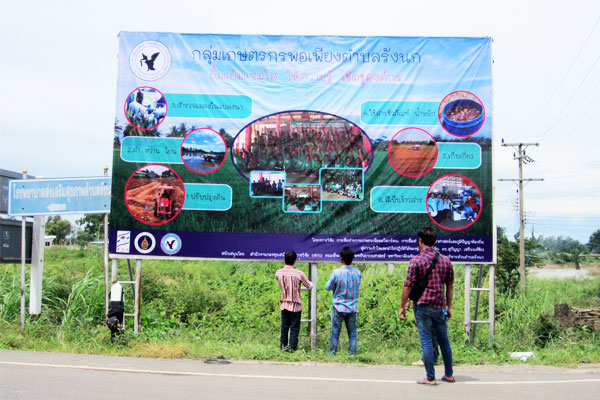Faculty of Environment and Resource Studies

Marketing Strategies for Improving Golf Tourism Management for Selected Golfer Segmentation
October 24, 2019
Mangrove Ecosystem-Sea Level-Societal Relationships in the upper Gulf of Thailand during the Holocene: Past Perspectives for Future Sea level Rise Mitigation and Adaptation
October 24, 2019Agricultural Communication to Reduce Global Warming: Science Communication and Indigenous Knowledge for Understanding and Practical Guidelines of Local Communities

Faculty of Environment and Resource Studies, Mahidol University



Agricultural communication to reduce global warming enables information dissemination of both scientific knowledge (SCK) and indigenous knowledge (IDK) for practical farming. This research aims to analyze the knowledge utilization and conduct agricultural participatory communication to reduce global warming. Data collection in Pichit province employed qualitative method including documentary research, focus group discussion, in-depth interview and community-based participatory communication. The key findings showed that SCK and IDK can be mutually beneficial utilization to enhance a good relationship among people and people with nature. The strength of IDK is seeking the methods and applying resources in the community for the greatest usefulness of local farmers, while SCK is based on rational thinking and proving process. The participatory communication processes consisted of planning, designing, producing, dissemination and evaluation. The successful farmers employing the farming practices of no burning rice residues, rice straw compost and alternative wetting and drying were the main senders. The messages were related to their farming practices focusing on practical and understandable texts and graphic explanations. Vinyl was selected as a channel to label at the most noticeable areas in their communities. This research highlights that participatory communication with the group dynamics, and communication promotion mechanisms at both local and national levels should be enhanced.
Utilization : The media (vinyls), based on participatory communication processes of the farmers, were displayed at the most noticeable areas in their communities.
Dr. Sukanya Sereenonchai
Faculty of Environment and Resource Studies, Mahidol University
+66 2 441 5000 ext. 1324
sukanya.ser@mahidol.ac.th
